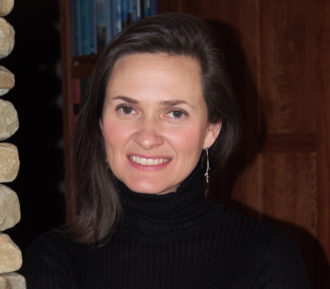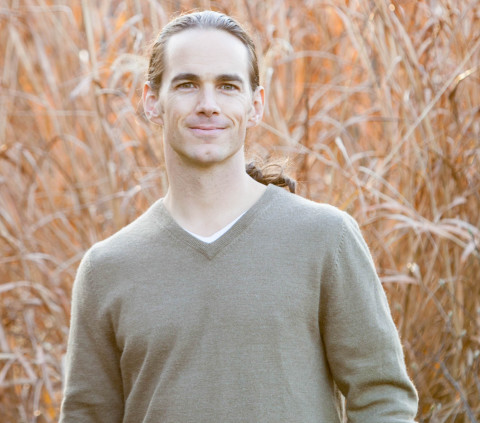Editor’s note: This story offers an alternative look at possible COVID-19 treatments, drawing on the widely varying perspectives of local practitioners and global experts.
COVID-19 has spawned a billion-dollar race to research and develop pharmaceutical drugs and vaccines to combat the pandemic. It typically takes years to develop a new drug, meanwhile, the U.S. Food and Drug Administration has approved only one existing medication to treat the disease.
In the interim, the federal agency did approve five potential treatments for emergency use only, pending further study. This does not include the subsequently revoked authorizations for chloroquine and hydroxychloroquine.
On Oct. 22, the FDA gave full approval to remdesivir, one of the five previously authorized as an emergency treatment only. The decision came just days after a large study sponsored by the World Health Organization found that the drug fails to prevent death in COVID-19 patients. Treatment with remdesivir, which is made by Gilead Sciences, costs more than $3,000 per patient.
And while we wait for drug companies to complete the randomized, double-blind studies the FDA requires, the only strategies Buncombe County recommends for the general public are masks, physical distancing and hand-washing, notes Public Health Director Stacie Saunders.
Against that backdrop, some local doctors and alternative health practitioners have turned to hundreds of small-scale and observational studies suggesting that cheap, over-the-counter supplements such as vitamin D and zinc might strike a significant blow in the struggle against COVID-19.
“We have to act,” says Dr. Brian Lewis of Integrative Family Medicine of Asheville. Integrative medicine is a holistic approach that includes emotional, social, environmental and spiritual factors.
“Doctors,” says Lewis, “have to do something for patients that are dying.”
Sifting the info
Just since March, tens of thousands of articles about COVID-19 have been published. But “The misinformation is overwhelming,” says Asheville resident Ken Blackman, a naturopathic physician who practiced in Arizona for many years.
“We have so much false information coming out from a lot of the medical community,” he says, urging people “to follow doctors and researchers who are not tied to industry.”
Last March, the nonprofit Institute for Functional Medicine asked Dr. Patrick Hanaway to head up a team of 20 doctors to evaluate hundreds of medical studies on 27 food- and plant-based agents whose effects on the human body might make them useful in the fight against COVID-19. The IFM is based in Washington state; Hanaway is an integrative physician at Family to Family in Asheville.
The task force, says Lewis, “has done a good job trying to cull through a lot of the information out there that isn’t very accurate.”
“The Federal Trade Commission,” notes Hanaway, “has written numerous warning letters to practices that were … making unfounded claims, without references, while also commercializing, marketing and selling these natural agents.”
Over-the-counter remedies
Hanaway’s team identified three over-the-counter supplements as particularly helpful in mitigating COVID-19’s symptoms: quercetin, NAC and vitamin D.
Quercetin, an antioxidant and anti-inflammatory found in many fruits, vegetables and grains, supports the immune system. NAC, an amino acid, boosts the body’s strongest antioxidant, glutathione. Vitamin D insufficiency “creates a significant increase in risk of COVID-19 infection,” notes Hanaway, who is past president of the American Board of Integrative Holistic Medicine. He’s quick to caution that there’s not enough data to claim that any of these substances prevents the illness. But, “There are measures that can be taken in terms of health, nutrition and immune support to decrease the risk of severe infection,” even though none of them are proven.
An observational study of data from 20 European countries published by Anglia Ruskin University last May found that vitamin D can be effective in preventing the so-called “cytokine storm” that’s been linked to many COVID deaths.
The task force also found what it called “strong” evidence in the medical literature for elderberry, vitamin C and zinc, the last of which was said to help with prevention, reduced severity of symptoms, reduced duration of illness and preventing lower respiratory tract infections. Other promising natural treatments identified by the task force include green tea, curcumin, resveratrol, melatonin, vitamin A, PEA, beta-glucans, andrographis and licorice.
But the IFM’s report, stresses Hanaway, offers only a glimpse of the abundant evidence that natural substances can be effective in treating COVID-19, even if they lack FDA approval.
Dueling views
Whatever promise some supplements and vitamins may show in treating the disease, few mainstream hospitals or doctors are likely to prescribe them without FDA approval.
William R. Hathaway, Mission Hospital’s chief medical officer, says vitamins have “no proven role in the therapy of COVID-19.” His institution, notes Hathaway, closely follows FDA guidelines.
The hospital’s staff routinely gives new COVID-19 patients ibuprofen or acetaminophen. If symptoms worsen, potential treatments include convalescent plasma, various forms of oxygen, a nasal steroid called dexamethasone and remdesivir, Hathaway explains.
“There’s clearly no magic bullet. Despite using all these therapies, there’s a group of people who don’t respond.”
Earlier this year, Dr. Richard Bartlett, a Texas physician, made headlines when he claimed that a combination of zinc and budesonide (a cheap, widely available asthma treatment that’s inhaled) is indeed a “silver bullet” that had been 100% effective in treating his COVID-19 patients, though various health officials were quick to dispute his claims.
Closer to home, Dr. Jim Biddle of Asheville Integrative Medicine says he’s treated just one confirmed COVID-19 patient to date. Biddle, who’s board-certified in internal medicine, says he, too, prescribed zinc and budesonide, adding that the patient has not yet recovered. Although the FDA hasn’t approved the treatment for COVID-19, Biddle maintains that in a health emergency, doctors must listen to other doctors and use their own judgment in weighing the relative risks of different approaches.
FDA bias?
But no matter how effective vitamins and supplements might be in treating COVID-19, the FDA is unlikely to approve them, says Biddle. Because of the high cost of satisfying agency requirements, “Nothing natural ever gets FDA-approved,” he maintains. “I can’t go out and come up with $100 million to show zinc works for COVID-19, because I can’t charge enough money selling zinc to earn that money back. If I could patent it so nobody else can sell zinc, then OK.”
“It’s the same story that’s been happening for decades,” he asserts. “The FDA is really financed by Big Pharma, and anything that cannot be patented and make a Big Pharma profit margin gets suppressed.”
Blackman, who compiled his own extensive database ranking research on natural treatments and preventive measures for COVID-19, agrees. He says the FDA has a long track record of approving unsafe drugs while blocking safe supplements. Blackman cites the decadeslong battle to gain FDA approval for folic acid as a supplement for pregnant and nursing mothers to reduce the risk of birth defects. “How many babies were born with brain damage because the FDA fought folic acid?” he wonders.
In an article published in The Lancet last May, Dr. Rose Anne Kenny, a professor of medical gerontology at Trinity College Dublin, argued that the evidence for vitamin D is strong enough to warrant its widespread use against COVID-19, even without FDA approval. “We don’t have randomized, controlled trial evidence, but how long do you want to wait in the context of such a crisis?” she pointed out. “We know vitamin D is important for musculoskeletal function, so people should be taking it anyway.”
Hanaway sounds a similar note, saying that the people who have the hardest time from COVID-19 have the lowest vitamin D levels. “It doesn’t mean it’s causative, but given that it costs you pennies to have the right vitamin D level, it’s not toxic, and we know it has effects on modulating the immune system … doesn’t that seem reasonable?”
Beyond supplements

Amid the gruesome news about COVID-19, there are simple, relatively low-cost steps everyone can take to help them stay healthy.
“Often, people are looking for the magic herb or supplement that will treat this or that, and sometimes they forget that the foundation of their lifestyle will support their immune system,” notes Lewis. He advises people to “Look at nutrition, exercise, stress management and relationships as a base for supporting their health and the immune system. … It doesn’t matter how much elderberry you take if you are overstressed, not sleeping and eating poorly.”
Meanwhile, Asheville acupuncturist and herbalist Lara Diaz emphasizes the role of attitude. “In Chinese medicine, we say disease begins when the mind is conflicted. So staying focused and positive is very important. Generally, for me, that means not watching a whole lot of sensational news.”






Before you comment
The comments section is here to provide a platform for civil dialogue on the issues we face together as a local community. Xpress is committed to offering this platform for all voices, but when the tone of the discussion gets nasty or strays off topic, we believe many people choose not to participate. Xpress editors are determined to moderate comments to ensure a constructive interchange is maintained. All comments judged not to be in keeping with the spirit of civil discourse will be removed and repeat violators will be banned. See here for our terms of service. Thank you for being part of this effort to promote respectful discussion.